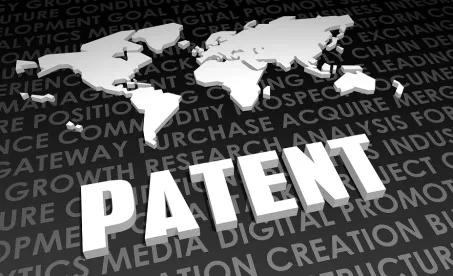In Droplets, Inc. v. E*Trade Bank, the Federal Circuit affirmed the decision of the USPTO Patent Trial and Appeal Board (PTAB) that Droplet’s patent was not entitled to the priority date of a provisional application because of a defect in the priority claim. In so doing, the court held that the statutory requirement for a “specific reference” to an earlier application cannot be satisfied by an incorporation by reference of another application that includes the specific reference at issue.
The Patent And Priority Claim At Issue
The patent at issue was Droplet’s U.S. Patent 8,402,115, which E*TRADE Bank challenged as obvious in an inter partes review proceeding. The ’115 patent was filed in January 2009 and expressly claimed priority to U.S. Patent 7,502,838 and U.S. Provisional Application No. 60/153,917, filed Sep. 14. 1999. However, the full chain of priority from the ’115 patent to the 1999 provisional application also included intermediary U.S. Patent 6,687,745, which was not specifically referenced in the ‘115 patent:

The Priority Claim Statute At Issue
The priority claim statute at issue is 35 USC § 120:
An application for patent for an invention disclosed in the manner provided by section 112(a) (other than the requirement to disclose the best mode) in an application previously filed in the United States … shall have the same effect, as to such invention, as though filed on the date of the prior application, if filed before the patenting or abandonment of or termination of proceedings on the first application or on an application similarly entitled to the benefit of the filing date of the first application and if it contains or is amended to contain a specific reference to the earlier filed application. No application shall be entitled to the benefit of an earlier filed application under this section unless an amendment containing the specific reference to the earlier filed application is submitted at such time during the pendency of the application as required by the Director. ….
The PTAB Decision
The PTAB found that the ’115 patent did not properly claim priority to the provisional application because it did not contain a specific reference to the ’745 patent. As such, an intervening reference qualified as prior art, and was found to render the patent obvious.
The USPTO Director intervened in the appeal to defend the PTAB decisions that
- under § 120, a patent must contain a “specific reference” to a previously filed application to be entitled to that application’s earlier filing date
- incorporation by reference cannot satisfy the specific reference requirement for claiming priority, and
- the Federal Circuit has already rejected constitutional and administrative law challenges to IPRs
The Federal Circuit Decision
The Federal Circuit decision was authored by Judge O’Malley and joined by Judges Dyk and Wallach.
The Federal Circuit agreed with the PTAB’s treatment of the priority claim issue. In addition to holding that the “specific reference” requirement of § 120 cannot be satisfied via incorporation by reference, the court held that only subject matter related to 35 USC § 112 can be incorporated by reference.
[E]ssential and nonessential material cover 100% of the universe of potential material that can be incorporated by reference to satisfy the applicant’s obligation to disclose the invention under § 112. But a recitation of priority is not part of the “written description of the invention” described in § 112. …. Accordingly, while 37 C.F.R. § 1.57 authorizes an applicant to incorporate by reference essential and nonessential material to satisfy § 112, nothing contained therein permits incorporating a priority claim by reference.
The court rejected Droplet’s criticism of hypertechnicality:
Although § 120 might appear to be a technical provision, courts have long recognized that it embodies an important public policy, and thus required strict adherence to its requirement. …. [T]he burden [is] on the patentee to clearly establish the priority chain as required by 35 U.S.C. 120.
Attention To Formalities
While priority claim statements may be seen as “formalities,” this decision and the others it discusses emphasize the need to take care in making priority claims, and the need to ensure that the specification or an Application Data Sheet includes a specific reference to each and every application in the priority chain.





 />i
/>i

